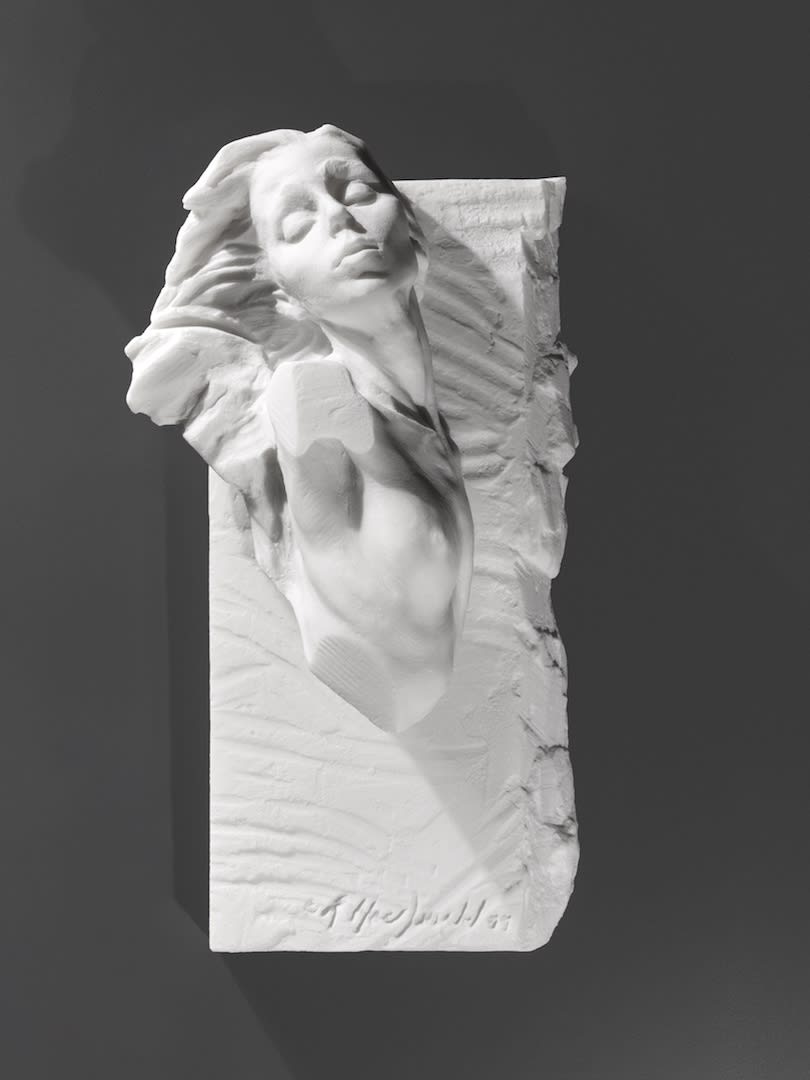Richard MacDonald American, b. 1946
In working his way through the Louvre, The Vatican and other historic art museums, Richard MacDonald is particularly engaged by the ancient pieces and the fragments that remain of them. His eye trains not so much on the preservation or the privation of this artistry but on the beauty of the pieces, which have become art forms in and of themselves. “The spontaneous fracturing of elements communicates completely different messages than they might have in their totality,” he said. “I am looking at an ancient form and yet, as I see it, it’s very contemporary. This has made me curious—what an important element for an artist—and fascinated with these forms and shapes as they are.” As MacDonald has discovered in "Fragment III, Radiance Red", a fallen sculpture can either shatter perspective or reveal the essence of an image.
